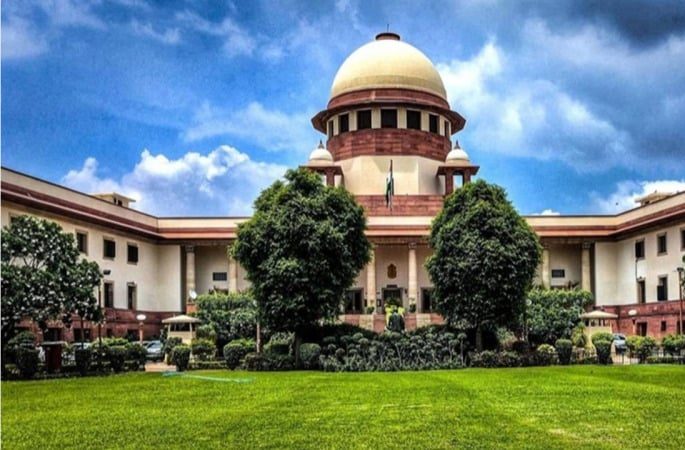
A bench of 9 judges of the Supreme Court said in its decision that the government cannot use all private properties unless public interest is involved. The Court also said that the role of the Court is not to determine economic policy, but to facilitate the establishment of economic democracy.
Can the government confiscate private property of an individual or community in the name of society under Article 39(B) of the Constitution? The Supreme Court has given its verdict on this important question. A nine-judge bench of the Supreme Court in its historic judgment on Tuesday said that the government cannot use all private properties unless public interest is involved.
Chief Justice Justice DY Chandrachud gave the majority verdict in the case on a bench of 9 judges. The bench ruled in a majority opinion that not all privately owned resources can be acquired by the state, however, the state can lay claim to those resources which are in the public interest and belong to the community.
Majority of 7 judges in the decision
The country's top court said that the old decision that the government can take over private property was mainly motivated by economic and socialist ideology. The Chief Justice, writing the decision with a majority of 7 judges, said that all private property cannot be physical resources, hence it cannot be taken over by the government.
The majority said in the judgment that while not all privately owned resources can be taken by the state, the state can lay claim to resources that are in the public interest and belong to the community. However, Justice B.V. Nagarathna appeared to partially dissent from the Chief Justice while Justice Sudhanshu Dhulia dissented.
The court overturned the 1978 decision
The court also rejected the earlier decision of Justice Krishna Iyer by majority. Justice Iyer's first judgment held that all privately owned resources could be acquired by the state. He says that the old regime was inspired by a particular economic and socialist ideology.
Additionally, the Supreme Court overturned post-1978 decisions that had adopted a socialist theme and ruled that the state could confiscate all private property for the common good.
Who are the judges in the bench of 9 judges?
CJI Chandrachud said that some of the judgments are wrong because all the personal resources of an individual are the material resources of the community. The role of the Court is not to determine economic policy, but to facilitate the establishment of economic democracy.
A nine-judge Constitution bench comprising Chief Justice DY Chandrachud along with Justice Hrishikesh Roy, Justice Sudhanshu Dhulia, Justice JB Pardiwala, Justice BV Nagarathna, Justice Rajesh Bindal, Justice Manoj Mishra, Justice Satish Chandra Sharma and Justice Augustine George Masih delivered the decision. Told. Decision on April 23 detailed hearing this year. After 5 days of hearing, on May 1, the Supreme Court reserved its decision.
 look news india
look news india